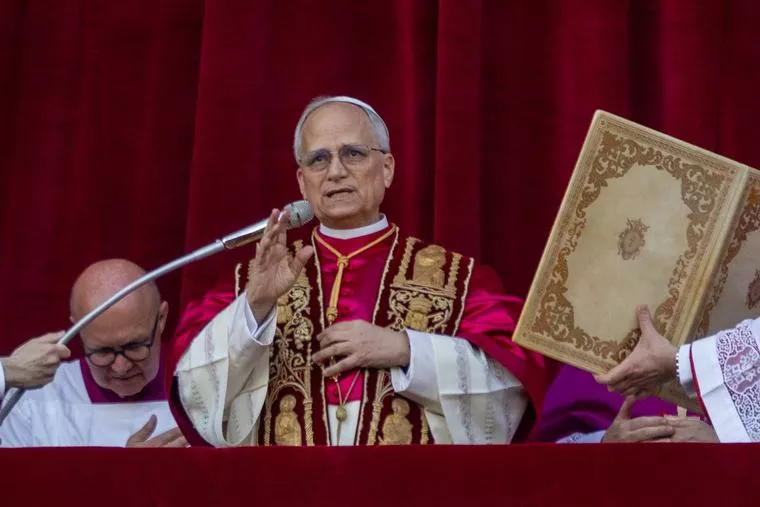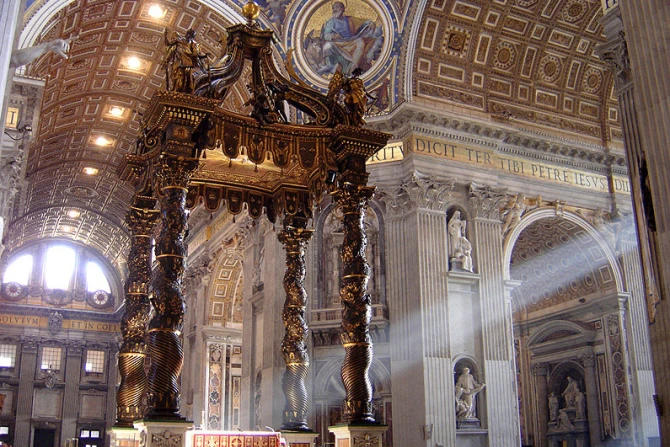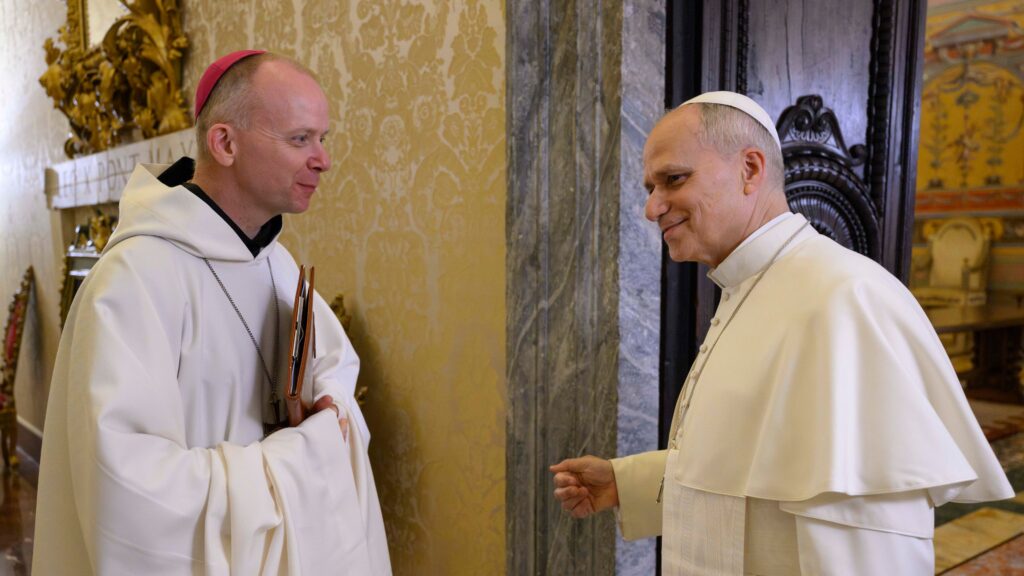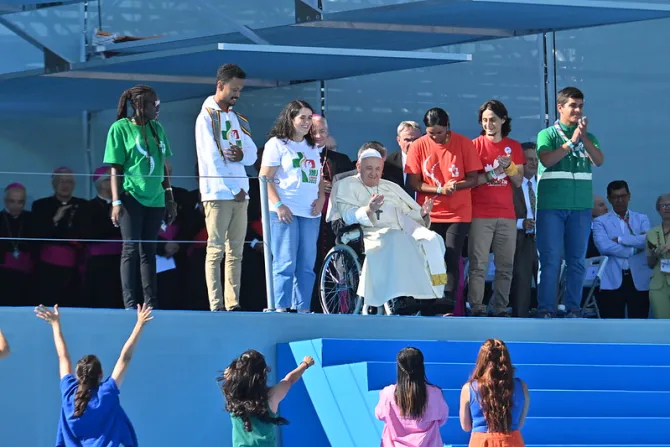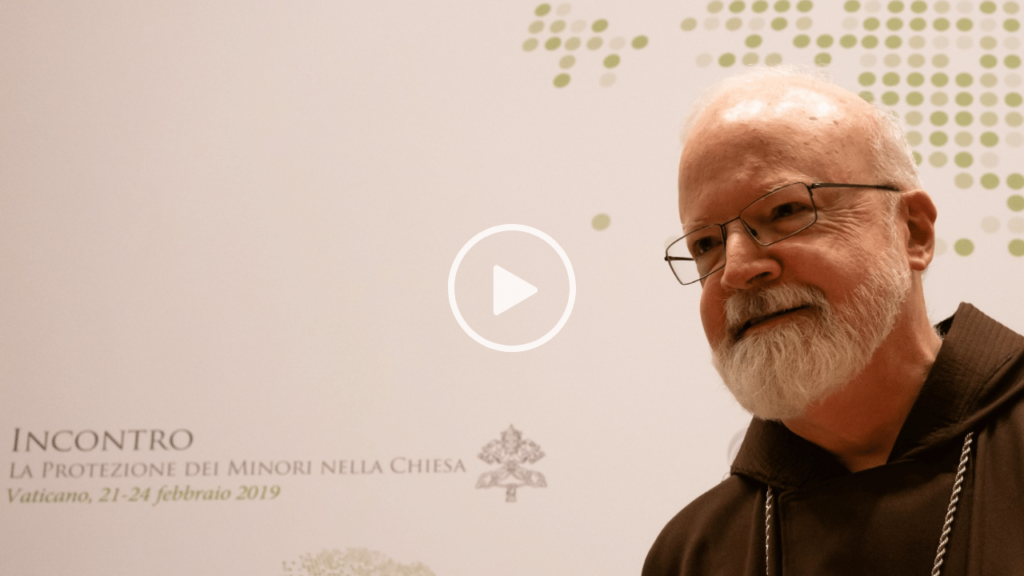Since the papal conclave elected Cardinal Robert Francis Prevost on May 8, many have been watching intently for clues as to how Pope Leo XIV will follow or depart from the path set by his late predecessor. Observers have noted his choice of a traditional papal name and his decision to wear the red cape called a mozzetta at his first appearance on the loggia of St. Peter’s Basilica — both signs of contrast with the maverick Pope Francis.
SIGN UP FOR OUR NEWSLETTER HERE
Yet one of the most discussed bits of evidence is not a decision by the new Pope but something he said more than a decade ago, when a colleague and I recorded it.
I met the future Pope Leo XIV in October 2012, a day after the end of the synod on the New Evangelization. The focus of that synod, highly characteristic of the pontificate of Pope Benedict XVI, was on the challenge of spreading and maintaining the faith in the increasingly post-Christian societies of the West. The thrust of many of the speeches was summed up by Cardinal Donald Wuerl of Washington, who lamented that a “tsunami of secularism” was engulfing the Church.
In those days, prior to restrictions imposed under Pope Francis, the speeches of participants at closed-door synod sessions were made regularly available to the press. One of the most quotable and provocative talks was by Father Robert Prevost, prior general of the Order of St. Augustine, who spoke about how Western mass media was promoting what he called “anti-Christian lifestyle choices” — including abortion, euthanasia and same-sex marriage — and how the Catholic Church could respond.
At that time, I was running the Rome bureau of Catholic News Service, part of the U.S. Conference of Catholic Bishops, and we were covering the synod extensively. I wrote to Father Prevost’s order, asking if I could interview him, and he promptly said yes. So, with my CNS colleague Robert Duncan, I went to see him at his office a few yards from St. Peter’s Square.
The future pope was gracious though a bit reserved, as I recall, but grew animated when discussing the great saint whose works are the foundation of his religious order. I interviewed Father Prevost on video discussing several issues including the lessons that St. Augustine offers, particularly in his Confessions, for evangelizing a highly individualistic society.
We also recorded Father Prevost reading the text of his synod intervention, which my colleague Robert turned into a two-part video, illustrated with examples of the very Western media culture that the future Pope was criticizing. You can watch the video here.
Father Prevost responded favorably when I sent him the results of our meeting. “Many thanks! I enjoyed seeing the video presentations, and have sent the links out to different places,” he wrote.
I didn’t see Father Prevost again for more than ten years, during which time he finished his term as head of his order and returned to Peru, his previous mission field, to serve as bishop of Chiclayo. When Pope Francis appointed him to head the Dicastery for Bishops in 2023, making him his top advisor in choosing Church leaders around the world, I was a bit surprised. The content of his 2012 synod speech did not, strictly speaking, contradict anything in the teaching of Pope Francis, but its counter-cultural tone struck a contrasting note with the Argentine Pope’s conciliatory approach to secular culture.
At a reception held by the U.S. embassy to the Holy See, I met the then-prefect and reminded him of our meeting and of his synod speech.
“A lot of water under the bridge since then,” he said, pleasantly but somewhat enigmatically.
On the day of the 2023 consistory when he became Cardinal Prevost, my former colleague Robert asked him if his views had changed on the controversial matters he had discussed in his 2012 synod speech.
The future Pope replied: “Pope Francis has made it very clear that he doesn’t want people to be excluded simply on the basis of choices that they make, whether it be lifestyle, work, way to dress, or whatever. Doctrine hasn’t changed, and people haven’t said yet, you know, we’re looking for that kind of change. But we are looking to be more welcoming and more open, and to say all people are welcome in the church.”
In his first homily as pontiff, speaking to cardinals in the Sistine Chapel the day after his election, Pope Leo XIV echoed his earlier remarks about secular culture’s hostility to Christianity: “Even today, there are many settings in which the Christian faith is considered absurd, meant for the weak and unintelligent. Settings where other securities are preferred, like technology, money, success, power, or pleasure.”
However, meeting again with the cardinals on May 10, the new pope declared his intention to follow Pope Francis’s example in several areas, including his “courageous and trusting dialogue with the contemporary world in its various components and realities.”
Now Pope Leo XIV’s 2012 speech, captured on tape, has become the basis of the first controversy of his pontificate. LGBTQ activists are voicing hopes that the speech is not reflective of the new pope’s vision. How he handles that question, or chooses to ignore it, will be yet another clue as to how he intends to lead.
This article was originally published on NCR.
HOW TO SEE THE HOLY FATHER POPE LEO XIV: EWTN TRAVEL JUBILEE APP

